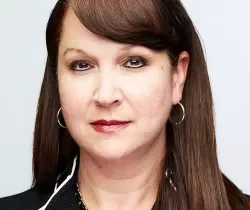Rachel Wimberly

Rachel Wimberly is Executive Vice President of Business Development at Tarsus Group, US. Follow her on Twitter @TSNN_Rachel.

In the past (almost) nine years of covering the trade show industry for first Tradeshow Week magazine and now Trade Show News Network, I have lost count the number of times I have read short-sighted, ill-informed and one-sided articles, op-eds, etc., about a city’s choice to build or expand a subsidized convention center or an adjacent hotel.
Most recently, I read an op-ed written by Steven Pearlstein for The Washington Post that lambasted the opening of a new headquarter hotel – Marriott Marquis – next to the Walter E. Washington (D.C.) Convention Center.
His op-ed hit all of the usual arguments I have heard over the years, such as the $850 million D.C. convention center that was supposed to bring in 750,000 annual room nights has not lived up to those expectations.
Also, Pearlstein goes to the old standby source for slamming any new builds or expansions – Heywood Sanders - a professor at the University of Texas at San Antonio, who in his book “Convention Center Follies” talks about the waste of money building centers when there is so much unsold space already available.
Pearlstein also says what he refers to as the Convention Industrial Complex “convinced political leaders that the reason bookings had failed to meet expectations was that they didn’t have a big “headquarters hotel” to offer convention planners, who value such hotels because they reduce the cost and complexity of running such large events.”
In a point of concession, though, he did add that Jim Goodman, vice president of the American Dental Association that has two meetings booked in D.C., said that without the Marriott Marquis, “he would have to find rooms in dozens of distant suburban hotels to accommodate the 10,500 peak-night hotel rooms he needs to bring dentists to town.”
I hope that anyone in the trade show industry that has sense is about to rip their hair out reading this right now.
Is Pearlstein’s op-ed totally wrong? No, not completely. There IS a lot of convention center space across the U.S. that is currently unused.
The problem with Pearlstein’s op-ed, though, and most others on this subject I have read, is he doesn’t ONCE mention the economic impact of bringing an event into town.
He uses only hotel room nights as the metric and doesn’t factor in that attendees actually eat, drink, ride in taxis and see the sights, besides all of the businesses and employees being supported by those same attendees being at their meeting, such as AV, food and beverage and security, to name a very few.
What Pearlstein doesn’t say is that, according to a PricewaterhouseCoopers study, the TOTAL meetings industry in 2012 had an economic impact of $770 billion and supported 5.3 million jobs nationwide. Yes, that was billion with a ‘B’.
He also doesn’t say what kind of total economic impact the 40,000 attendees from the American Dental Association will have next year when they come to town.
You know, those 40,000 people that would NOT be booked in D.C. without that new headquarter hotel next to the city’s convention center.

Add new comment